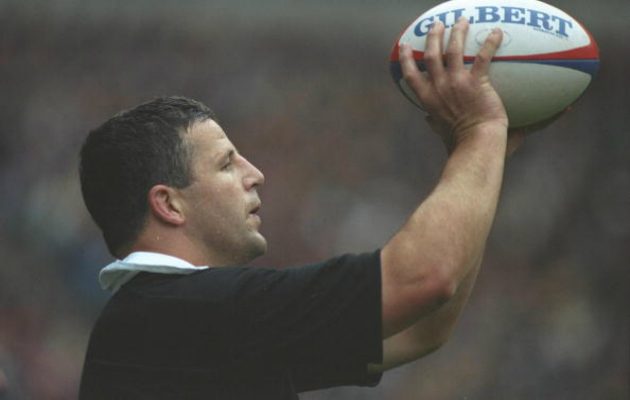Major teams: Auckland, Blues
Country: New Zealand
Test span: 1986-97
New Zealand caps: 92 (91 starts)
Test points: 55 (12T)
Rugby’s Greatest: Sean Fitzpatrick
As the son of an All Black, Sean Fitzpatrick had genetics on his side. But it took some epiphanic moments to ensure he went the distance in a career that brought him 92 caps, 51 of them as captain, and an 82% win rate.
Two in particular stand out. Whilst on tour in America for Auckland in 1983, the young hooker was taken to task by second-row Andy Haden for his lineout throwing in training. “He told me he wasn’t going to waste his time and made me go and fetch another hooker,” says Fitzpatrick, who then spent six months, night after night, perfecting his art.
Then, in 1991 with 40-odd caps under his belt, Fitzpatrick was jolted from a sense of complacency by seeing a newspaper article hailing Aussie rival Phil Kearns as the best hooker in the world. Fitzpatrick changed his attitude and went on to become an indestructible presence and captain of one of the best teams in history.
The World Cup cruelly eluded the All Blacks in 1995, but they returned the next year to become the first New Zealand side to win a series in South Africa.
Fitzpatrick’s mantra was ‘be the best you can be’ and to his remorseless drive and refusal to yield to injuries – he started all but the last of his 92 Test appearances, giving way to Norm Hewitt in 1997 because of a chronic knee condition – he added a dollop of luck.
New Zealand Rugby World Cup Fixtures, Squad, Group, Guide
Winners of the past two World Cups, the…
Rugby’s Greatest: Os du Randt
Introducing the South African loosehead prop, who has made…
Rugby’s Greatest: Jason Leonard
Introducing the English loosehead prop, who has made one…
An injury to Andy Dalton opened the door for Fitzpatrick to play in the 1987 World Cup-winning team, while his selection as captain in 1992 followed an injury to Laurie Main’s first-choice skipper Mike Brewer in the final trial.
If the fates smiled on him, Fitzpatrick has repeatedly shown that he’s ready to seize the day, even emigrating to London in 2003 because there were more opportunities there to build his work portfolio of speaking engagements, media punditry and corporate hospitality.

You’ve been framed: receiving a Hall of Fame cap during a 2014 reunion dinner in Auckland (Getty Images)








